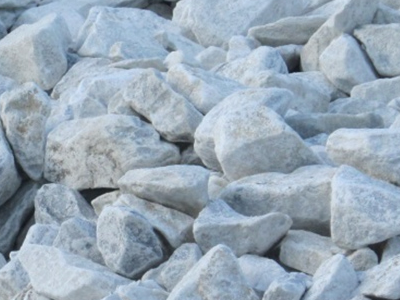What is Calcium Carbonate
- Postdate: 2023-06-05
- From: qibochem.com
-
What is Calcium Carbonate
- Postdate: 2023-06-05
- Form: qibochem.com
-
1 Introduction
Calcium carbonate (English: Calcium carbonate), commonly known as limestone, limestone, stone powder, is a compound with the chemical formula CaCO3, which belongs to carbonates, is alkaline, almost insoluble in water, and can react with acids.
Calcium carbonate is abundant on earth and exists in many forms in rocks, minerals and organisms, such as: aragonite, calcite, chalk, limestone, marble, travertine. It is also the main component of animal bones or shells (such as: reptiles and bivalves). Calcium carbonate is also the main component of scale, which is usually formed by the combination of calcium ions and carbonate ions in water, and often occurs in areas with high water hardness. Calcium carbonate is also one of the active ingredients in agricultural lime, which can be used to neutralize soil acidity, but excessive use also has the risk of causing soil salinization. In medical applications, calcium carbonate is also a commonly used source of calcium, and is often used as one of the active ingredients in acid suppressants.
2 Application
2.1 Industrial calcium carbonate is divided into four specifications according to the different crushing fineness: single fly, double fly, triple fly, and four fly.
Single fly powder is used to produce anhydrous calcium chloride, which is an auxiliary raw material for the production of sodium dichromate, and is also the main raw material for glass and cement production. In addition, it is also used in building materials and poultry feed, etc.; double fly powder is used to produce anhydrous chlorine The raw material of calcium carbide and glass, etc., is also the white filler of rubber and paint, and is also used in building materials; Sanfei powder can be used as filler of plastics, paints and paints; Sifei powder can be used as filler of wire insulation layer, rubber Filling for moldings and bituminous felts.
2.2 Calcium tablets 500 mg made of calcium carbonate
Calcium carbonate is used as an antacid in medicine, which can neutralize gastric acid and protect the ulcer surface, and is used for hyperacidity, gastric and duodenal ulcers and other diseases. Calcium carbonate is used as a food additive to ensure the intake of calcium necessary for the human body, but usually not more than 2%. In addition to being used in medicine and food, calcium carbonate can also be used as a raw material for tooth powder, toothpaste and other cosmetics. In chewing gum and chocolate, it can be used as a strengthening agent, which not only reduces the cost, but also acts as a matrix material. In toothpaste, heavy calcium carbonate is used as an abrasive; in cosmetics, finer high-quality calcium carbonate can be used as a filler.
2.3 Nutritional Supplements
The main ingredient of most calcium tablets on the market is calcium carbonate. Calcium carbonate is cheap and needs to be taken with meals, which can easily cause discomfort. Common side effects are constipation, abdominal pain, and flatulence. Other types of calcium tablets such as calcium phosphate will not cause side effects such as constipation, abdominal pain, and flatulence.
Since the calcium required for the growth and development of fetal bones is provided by the mother, women will lose a lot of bone during pregnancy. Bone loss can lead to osteoporosis and even fragility fractures in pregnant women. 75% of women will experience functional gastrointestinal disorders (FBD) during pregnancy, such as constipation, flatulence, irritable bowel syndrome (IBS), etc. Constipation is one of the most common gastrointestinal symptoms during pregnancy. Even women without a history of constipation are more likely to experience constipation during pregnancy, and women with a history of constipation tend to have more severe constipation during pregnancy. Severe constipation can cause pudendal nerve damage and loss of support from the pelvic floor muscles leading to urinary incontinence and vaginal relaxation. Constipation also increases the chance of uterine vaginal prolapse. Calcium carbonate is the source of calcium most likely to cause constipation. The carbon dioxide (CO2) produced by taking calcium carbonate is the culprit that causes gastrointestinal discomfort such as constipation and flatulence. Clinical trials have confirmed that taking calcium carbonate will increase the chance of constipation by 32%. Pregnant women should avoid calcium tablets with calcium carbonate.
2.4 Other uses include
2.4.1In the metallurgical industry, it is mainly used as a cosolvent.
2.4.2Used in the manufacture of building materials cement, lime, artificial stone.
2.4.3Neutralizes sulfur dioxide, water, acidic soil or farmland.
2.4.5Manufacture of glass, calcium flakes, etc.
2.4.6Plastic, rubber, paint, silicone rubber and other industries are mainly used as fillers to reduce costs. It can also improve the stability, hardness, rigidity, heat resistance and processing performance of plastic products.
Shijiazhuang Qibo Chemical Co., Ltd. the manufacture, specializes in the production of PP, PC, PE, PA, PET, ABS, PVC flame retardants for 16 years in China.In the production process, not only raw materials, flame retardants, etc., but also fillers such as calcium carbonate and talcum powder can be added without affecting the performance of the product.

















